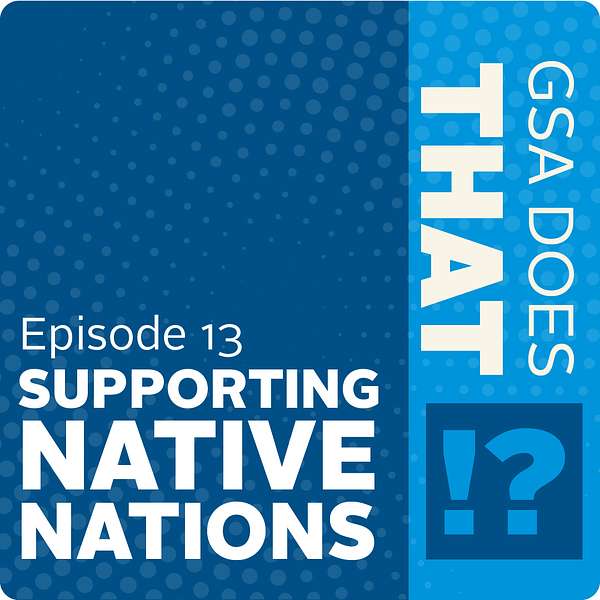
GSA Does That!?
GSA Does That!? tells the stories of how GSA delivers effective and efficient government through its buildings, acquisitions, and technology. Each episode will give listeners a behind-the-scenes look at the people and programs making the business of government happen.
GSA Does That!? has something for everyone, featuring interviews with senior leadership, program experts, outside guests, and others who will provide fresh perspectives on GSA's work.
GSA Does That!?
Supporting Native Nations
Use Left/Right to seek, Home/End to jump to start or end. Hold shift to jump forward or backward.
GSA Does That!? Episode 13 shines a light on how GSA empowers Tribal Nations. Julie Ramey and Chris James join us to discuss enhancing Indigenous services and supporting Native businesses. Discover their vital role in federal markets and GSA's push for progress. Tune in for a compelling conversation on partnership and empowerment.
Want to know more?
Are you looking for more information about Native American Affairs? Check out the resource below!
"GSA Does That!?" is the U.S. General Services Administration's first agency-wide podcast, offering listeners an inside look into how GSA and its partners benefit the American people. The podcast features interviews with GSA leaders, experts, partners, and customers, covering topics such as federal real estate, acquisitions, and technology. The title reflects many's surprise at the scope of GSA's impact. Whether you're a policy wonk or just curious about government operations, you can join the listener community.
For more information about the show visit, gsa.gov/podcast.
